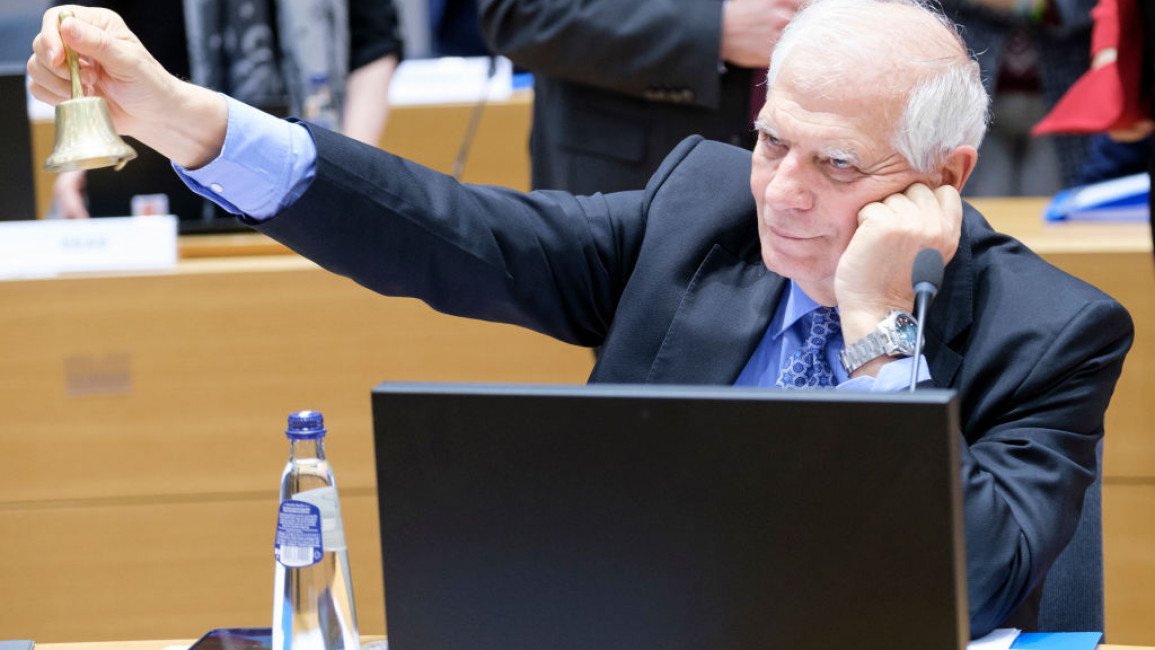Tunisia rejects 'overblown' EU warnings of looming economic and social collapse
Tunisia on Tuesday dismissed as "overblown" concerns of a looming economic or social collapse after the EU's top diplomat warned of a "very, very dangerous" situation in the North African country.
European Union foreign policy chief Josep Borrell had warned Monday that if crisis-torn Tunisia "collapses economically or socially then we will be in a situation where new flows of migrants will come to Europe".
Tunisia's foreign ministry rejected his comments as "overblown, both in view of the well-established resilience of the Tunisian people throughout its history and in view of the threat of migration to Europe from the south".
An EU delegation was set to visit Tunisia on Tuesday to examine "the political and socio-economic situation" and discuss cooperation over irregular migration, according to an EU statement.
In the statement, it blamed the country's leadership in the years following the 2011 pro-democracy revolution for the country's woes.
Tunisia has suffered over a decade of economic and political crisis, culminating in a July 2021 power grab by President Kais Saied, whose rivals have accused him of mounting a coup.
Saied has since overturned the country's post-revolution constitution and granted himself almost limitless powers, as well as launching a crackdown against the opposition.
Tunisians have continued to struggle with joblessness and surging inflation, exacerbated by the fallout from Russia's invasion of Ukraine, pushing many to try to leave the country.
Tunis is in prolonged talks with the International Monetary Fund for a $2-billion bailout package to help the heavily indebted treasury balance its books.
Southern European leaders, particularly Italy's far-right government, are concerned at inflows of irregular migrants from and via Tunisia, which lies just 130 kilometres (80 miles) from the Italian island of Lampedusa.
Tunisians make up a large proportion of those attempting the dangerous journey, but many other Africans escaping violence and poverty from south of the Sahara also try to reach Europe via Tunisia.
Saied in February made an incendiary speech blaming "hordes of illegal migrants from sub-Saharan Africa" for a crime wave and saying a "criminal plot" was underway to change the nation's demographic make-up.
The World Bank effectively suspended new lending to Tunisia after Saied's remarks, a move that put pressure on the IMF not to approve a bailout.
Beyond the economic situation, the EU has been upset by Saied's increasing authoritarianism and a crackdown on opponents that has seen more than 20 political figures arrested in recent weeks.
"We cannot turn a blind eye to what's happened," Borrell said.
In its statement, the Tunisian foreign ministry praised the "constructive support of several partners" including Italy, and said it was open to "a responsible, respectful and equal partnership with all its partners".


![Minnesota Tim Walz is working to court Muslim voters. [Getty]](/sites/default/files/styles/image_684x385/public/2169747529.jpeg?h=a5f2f23a&itok=b63Wif2V)




![Debris near Rafic Hariri International Airport [Getty]](/sites/default/files/styles/image_330x185/public/2176162423.jpeg?h=a5f2f23a&itok=MCSK9mkM)
![An Israeli air strike on Jabalia killed teenage journalist Hassan Hamad [Screengrab/X]](/sites/default/files/styles/image_330x185/public/2024-10/hassan%20hamad1.jpg?h=c12e0b96&itok=Rd_dyCVp)
